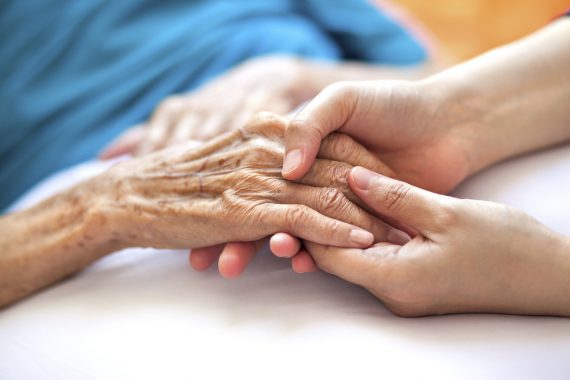Almost 40% of doctors agree BMA should support assisted dying

More doctors are in favour of seeing the BMA change its stance to support assisted dying than those who are against it, a major BMA survey has revealed.
However, GPs are ‘generally more opposed’ to physician-assisted dying than other doctors, the BMA said following its first-ever survey on the issue.
Currently, the BMA’s position is to oppose all forms of physician-assisted suicide but a vote at last year’s Annual Representative Meeting instructed the BMA to launch the poll.
The BMA was urged to ‘carry out a poll of members to ascertain their views on whether the BMA should adopt a neutral position with respect to a change in the law on assisted dying’.
An independent survey of 28,986 BMA members – including 7,826 GPs – launched in February found that more doctors believe the BMA should support (39%) than oppose (34%) a change in the law on prescribing drugs for eligible patients to self-administer to end their own life.
A total of 21% of all doctors said they believe the BMA position should be ‘neutral’ on the issue and 6% said they were ‘undecided’.
However, more GPs thought the BMA should remain opposed (39%) to assisted dying than those who said the organisation should support it (34%). The survey found 21% of GPs wanted to see a ‘neutral’ position taken and 6% were ‘undecided’ on the issue.
The results, published yesterday, also show that almost half of doctors (48%) personally support a change in this law, although more GPs said they oppose (46%) than support (43%) this.
More doctors overall also said they would not (47%) be willing to participate in the process if the law were changed than those who would (35%).
However, more doctors agreed the BMA should remain opposed (42%) to a change in the law regarding doctors administering drugs to end an eligible patient’s life than support it (29%).
Almost half (47%) personally opposed a change to the law on doctors administering these drugs and 56% said they would not be willing to participate if the law were changed.
The BMA said that GPs, who made up 27% of respondents, were ‘generally more opposed than most other branches of practice’ to physician-assisted dying. It noted:
- 39% of GPs said the BMA should oppose a change in the law regarding prescribing drugs to end patients’ lives, compared with 34% of doctors overall
- 46% of GPs personally opposed a change to the law, compared with 41% of doctors
- 50% of GPs would not be prepared to prescribe the drugs, compared with 47% of all doctors
- 46% of GPs believe the BMA should oppose a change in the law regarding administering drugs to end patients’ lives, compared with 42% of doctors overall
- 52% of GPs personally opposed a change to the law, compared with 47% of doctors
- 61% of GPs would not be prepared to administer the drugs, compared with 56% of all doctors
Doctors in anaesthetics, emergency medicine, intensive care and obstetrics and gynaecology tended to be ‘more supportive’, the BMA added.
The BMA said that its policy remains opposed to assisted dying ‘in all forms’.
However, the results of the survey will inform a debate due to take place in June 2021 as part of the BMA’s annual representative meeting, which could lead to a change in policy.
It comes as the RCGP is facing a potential legal challenge by two senior GP members who want it to end its opposition to assisted dying.
The RCGP council decided in February this year to maintain its opposition despite a major member survey noting a significant reduction in support for the stance – from 77% in 2013 to just 47%.
Related Articles
READERS' COMMENTS [1]
Please note, only GPs are permitted to add comments to articles











The RCGP’s stance on this issue was a disgrace.
The majority of GPs voted to move towards a neutral stance on assisted dying, yet the RCGP, overtly undemocratically, ignored the will of its own members.